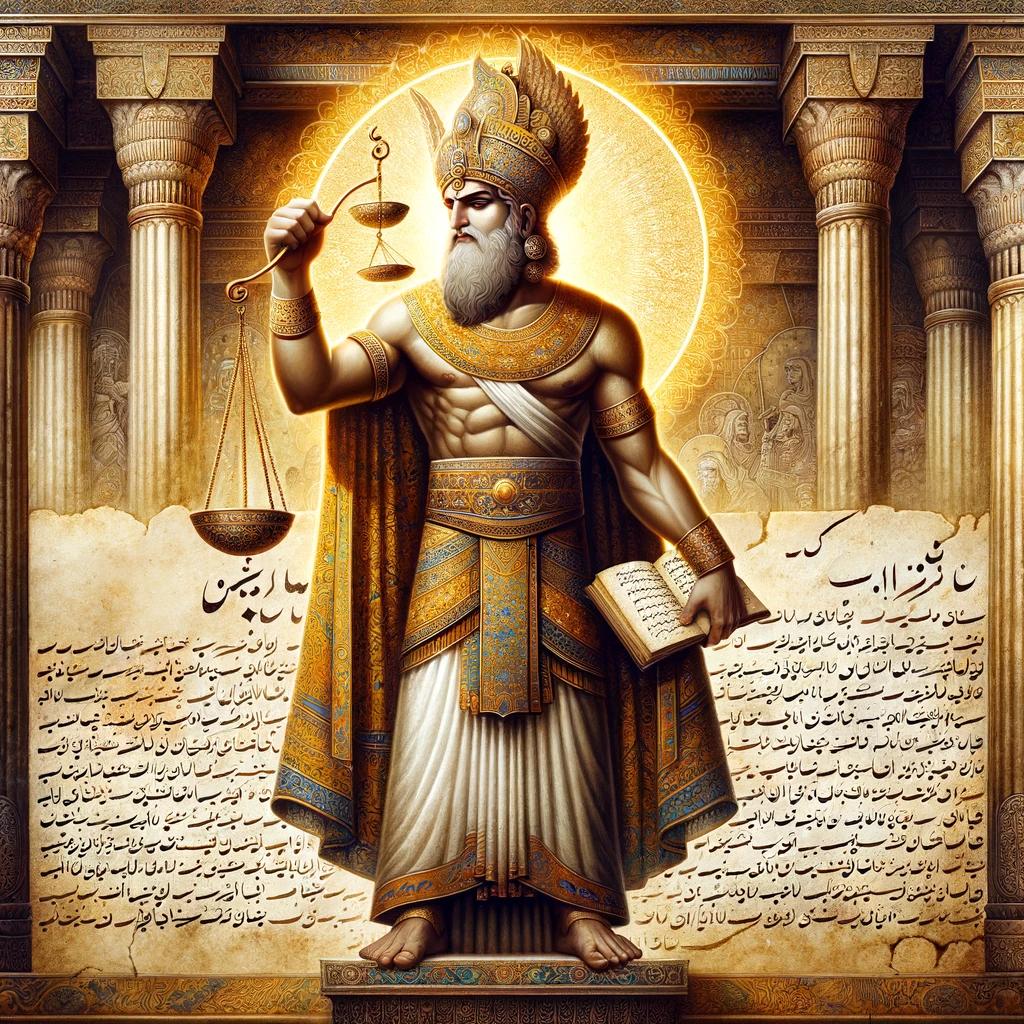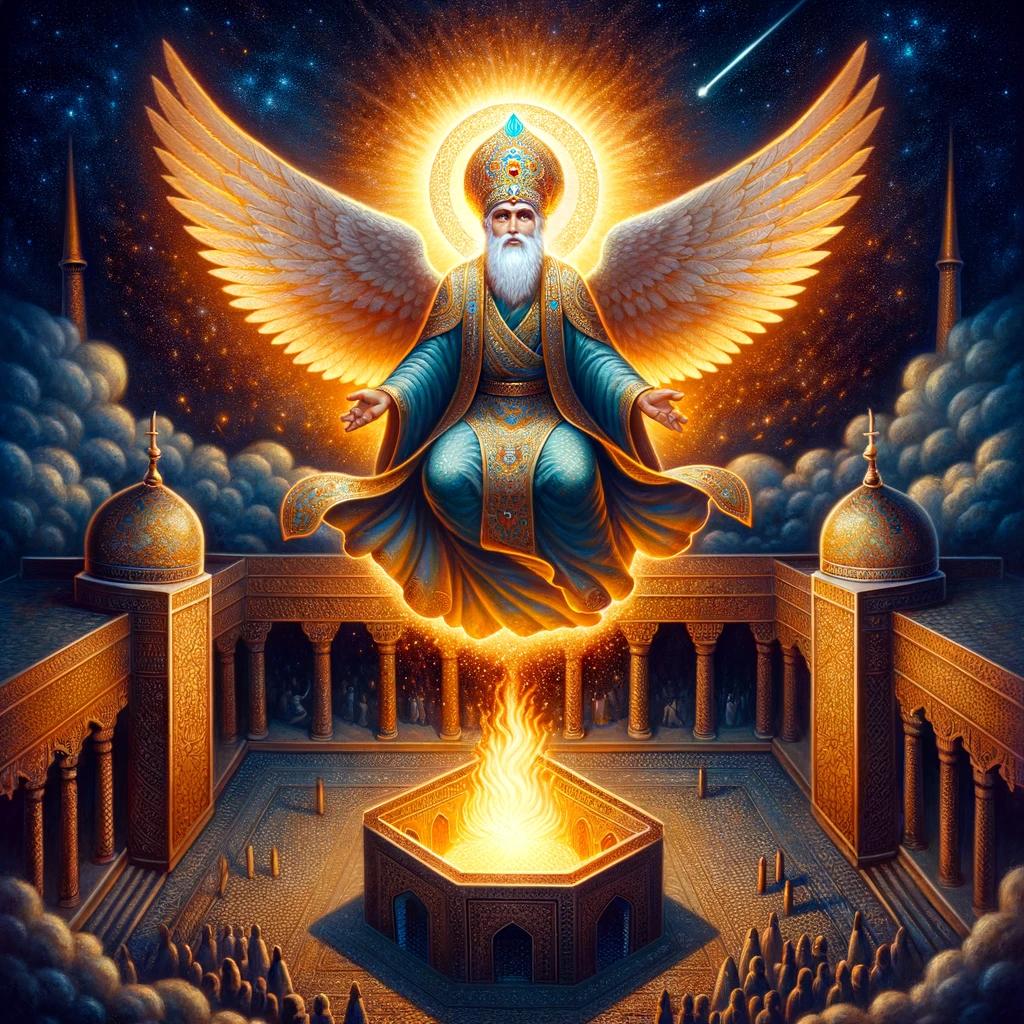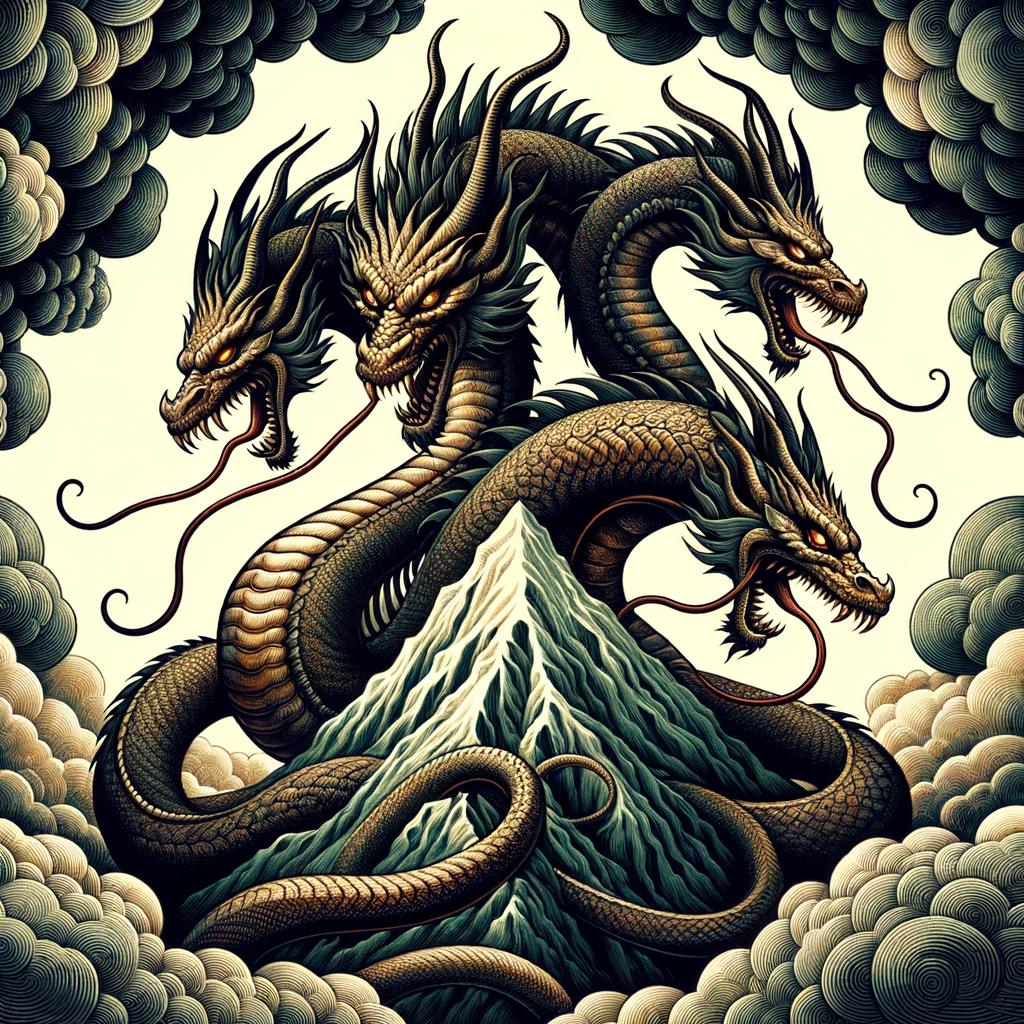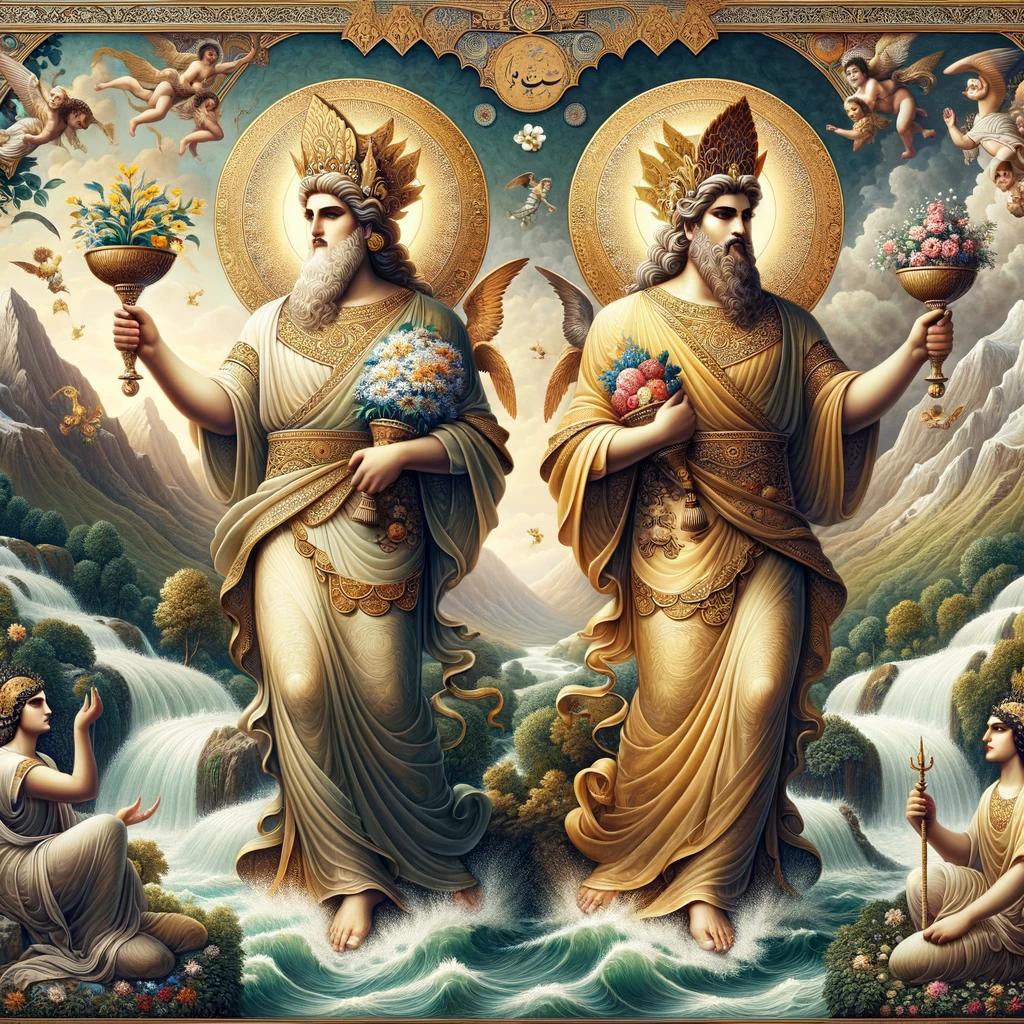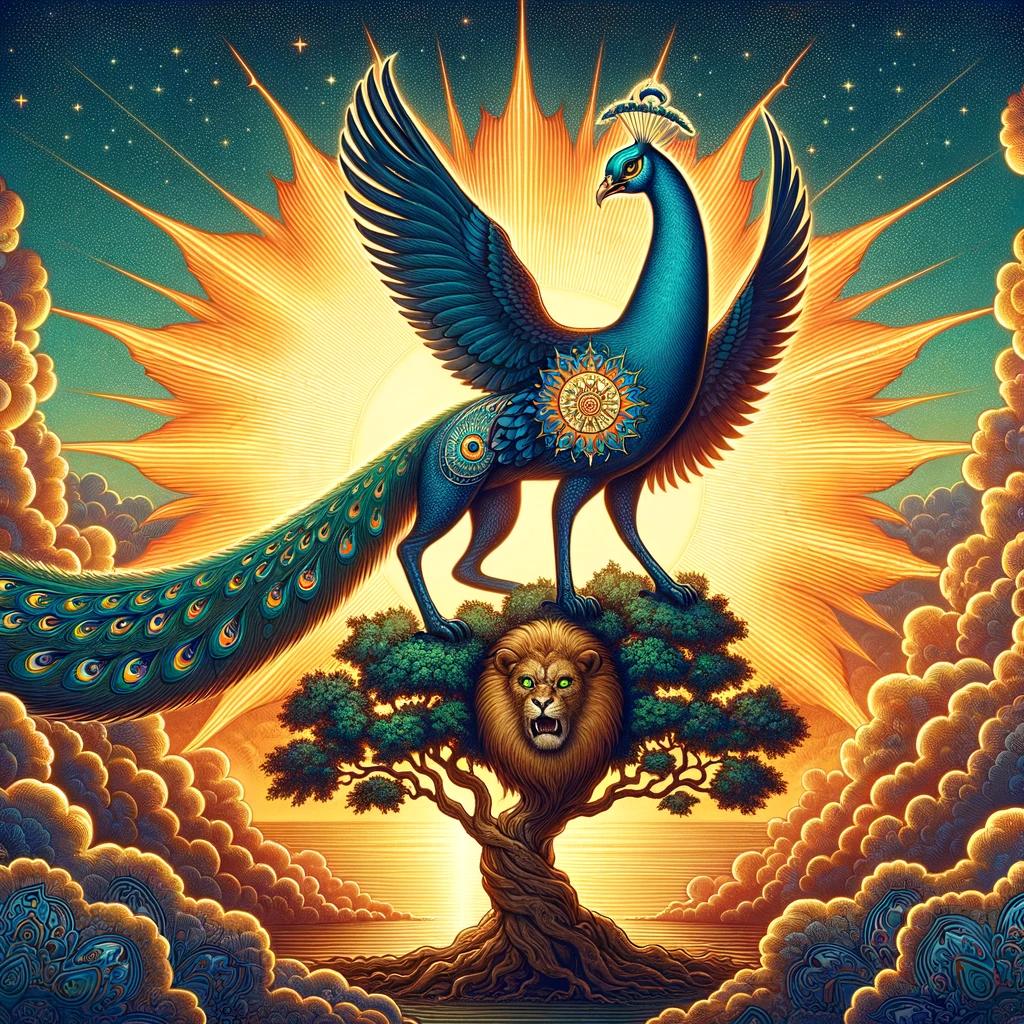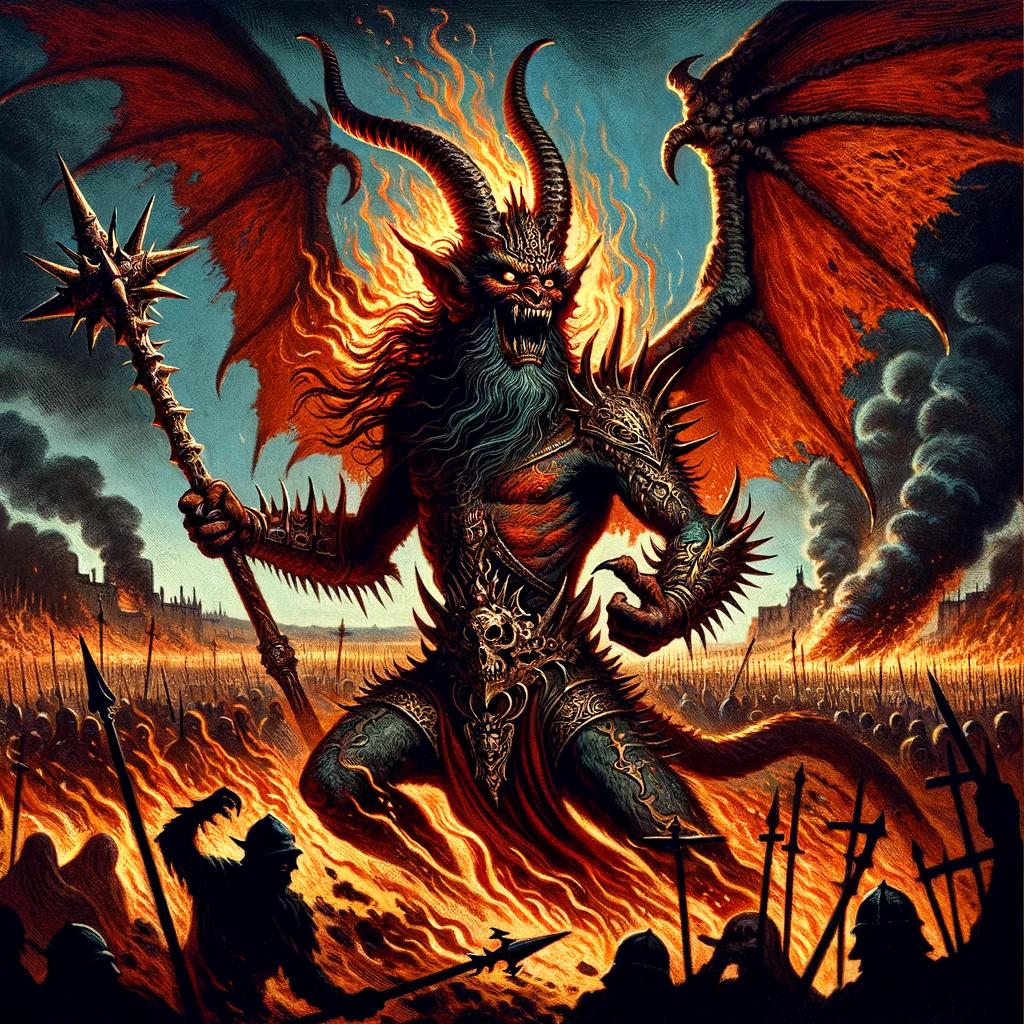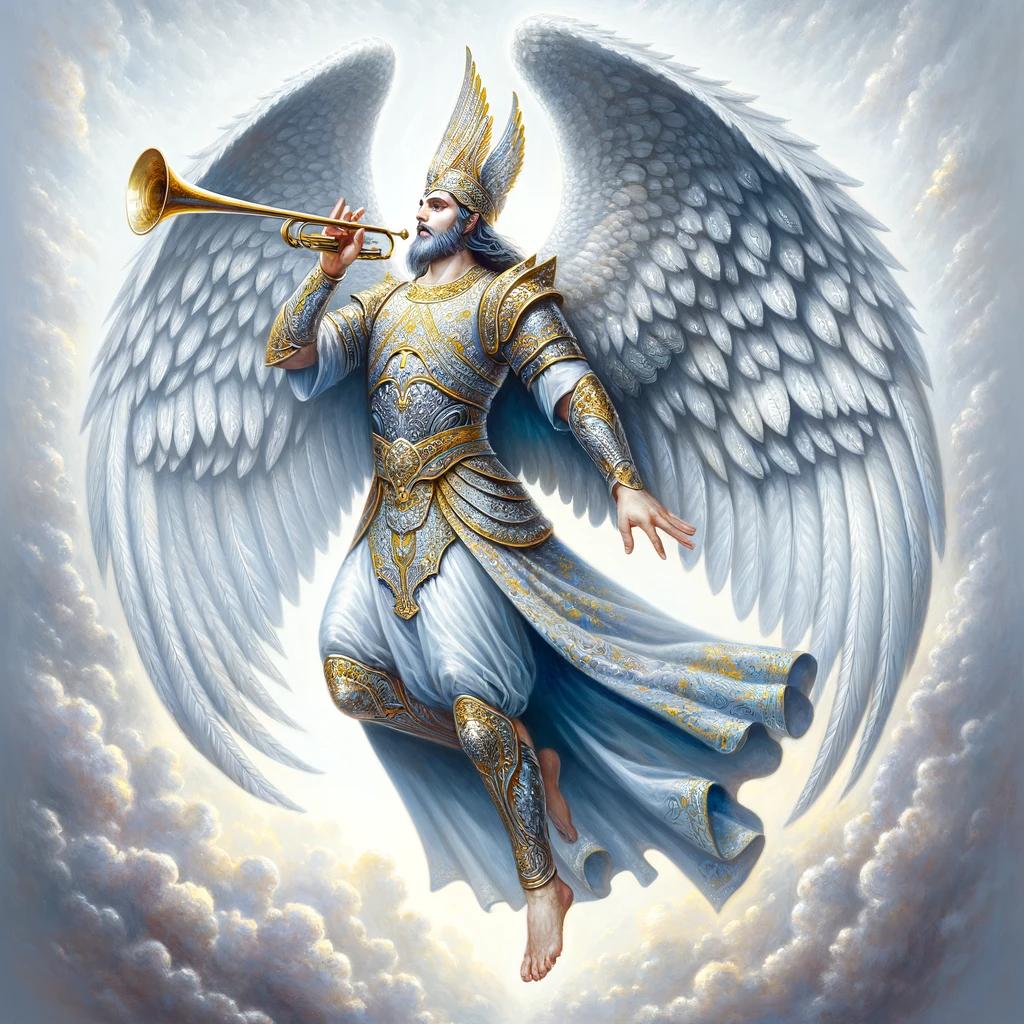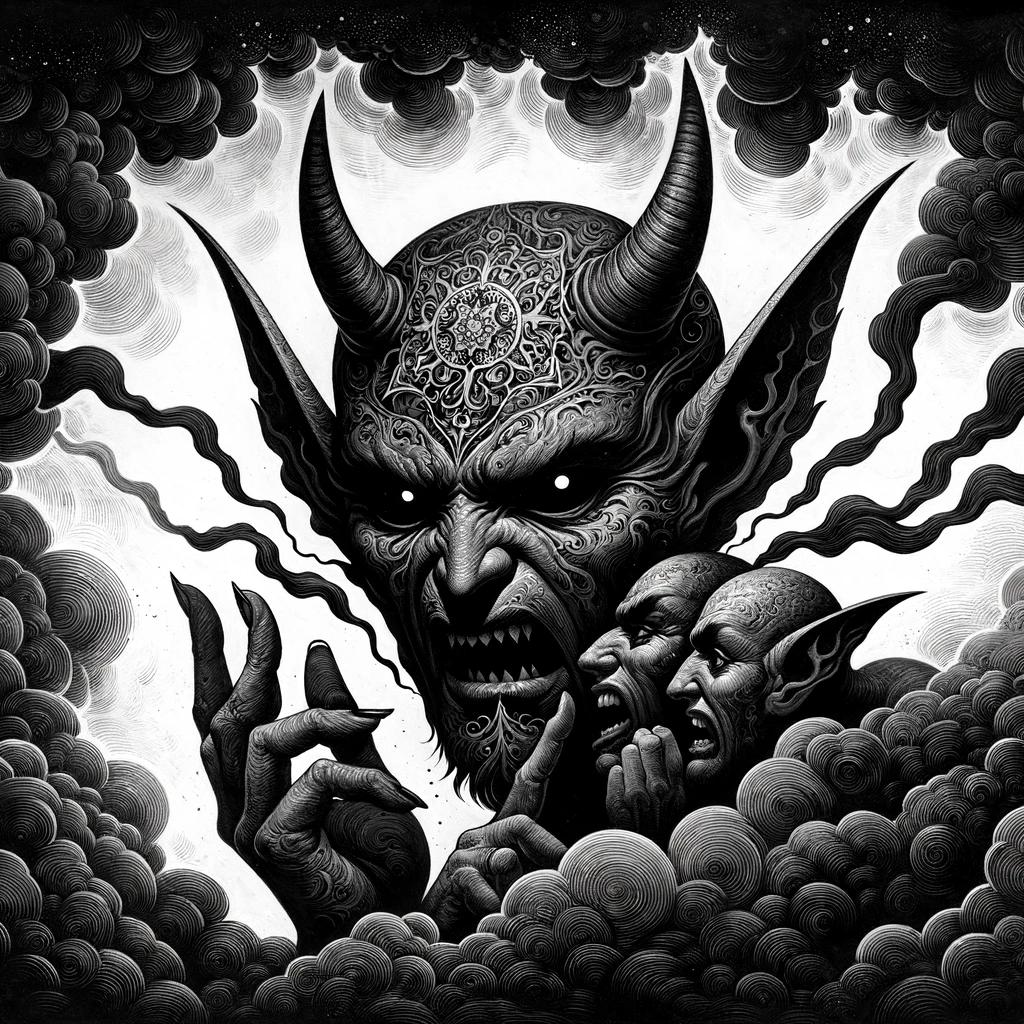‘Rashnu: The Persian God of Justice in Zoroastrianism’
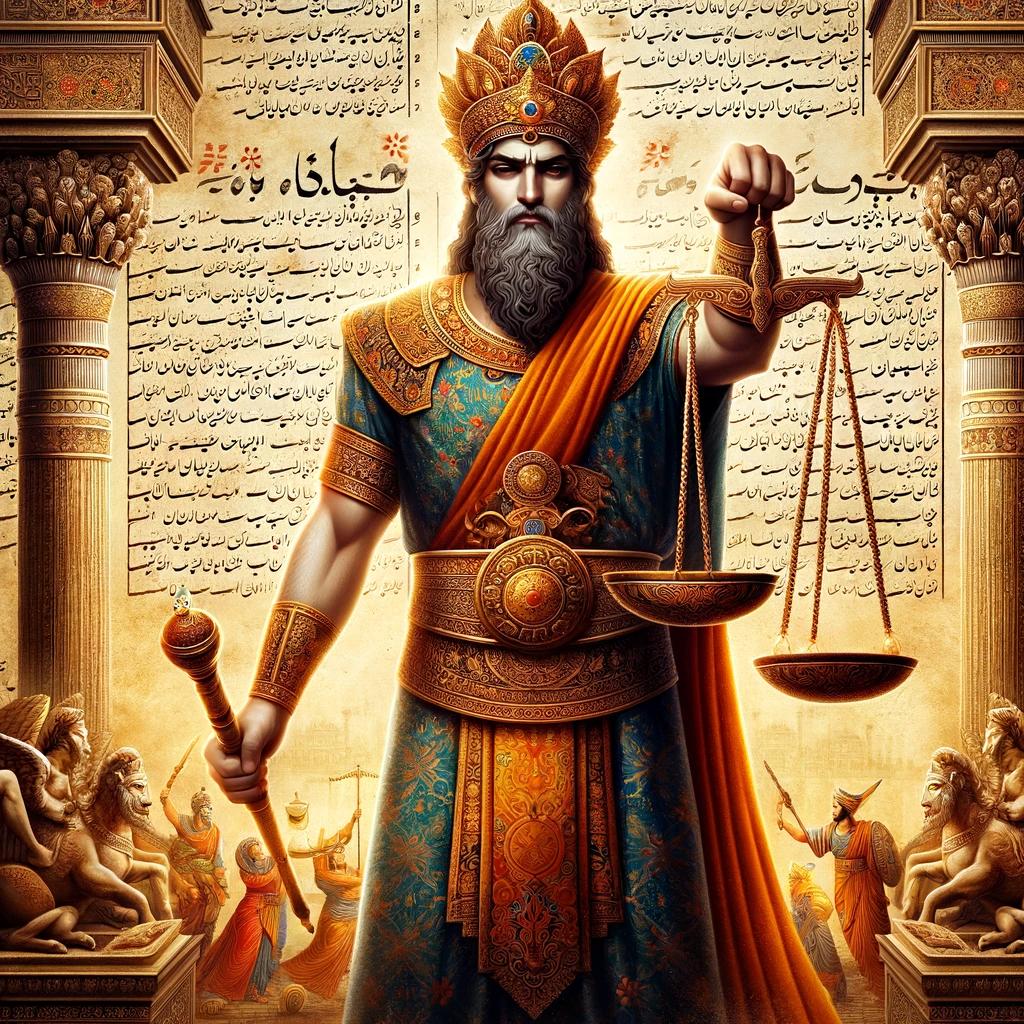
Rashnu, the Persian god of justice, holds a significant role in Zoroastrianism. Alongside Mithra and Sraosha, Rashnu forms the divine triad responsible for judging souls after death.
Known as “the very straight,” Rashnu upholds truth (arta/asha) and safeguards the material world from destruction by daevas. With impartiality, Rashnu assesses the deeds of both men and women, regardless of social status, during the three-day period after their demise.
Saved souls are escorted to heavenly realms, while condemned souls face a treacherous journey across a razor-thin bridge towards torment in Druj, guided by embodiments of their actions. Various other deities hold importance in Persian mythology, representing different aspects of nature and life.
Exploring the Rashnu Persian God in Zoroastrianism
The Rashnu Persian god holds a significant place in the beliefs and practices of Zoroastrianism. This section delves into the origins and history of Rashnu within Persian mythology, shedding light on its evolution over time.
The Origins and History of Rashnu in Persian Mythology
Rashnu’s roots can be traced back to ancient Persian mythology, where it emerged as a prominent deity associated with justice and righteousness. This subtopic explores the historical context surrounding the development of Rashnu’s character and its influence on religious beliefs.
The Role of Rashnu as the Persian God of Justice
As the Persian god of justice, Rashnu plays a crucial role in upholding fairness and truth. This section examines how Rashnu carries out the responsibility of impartial judgment, evaluating the actions of souls and prescribing their respective fates based upon their deeds.
Rashnu’s Position in the Divine Triad: Mithra and Sraosha
Rashnu is an integral part of the divine triad, along with Mithra and Sraosha, tasked with the weighty duty of judging souls in the afterlife. This subsection sheds light on the interconnected roles of these three deities and the significance of their combined presence in Zoroastrian beliefs.
In summary:
- Explore the origins and historical background of Rashnu within Persian mythology.
- Examine Rashnu’s role as the Persian god of justice and its impact on religious teachings.
- Understand the interconnectedness of Rashnu with Mithra and Sraosha as part of the divine triad.
Understanding Zoroastrianism: A Brief Overview
Zoroastrianism is an ancient religion that originated in Persia, now modern-day Iran.
It was founded by the prophet Zoroaster, also known as Zarathustra, around the 6th century BCE. At its height, it was one of the largest and most influential religions in the world.
Central to Zoroastrianism is the belief in the existence of two opposing forces, Ahura Mazda, the creator god, and Angra Mainyu, the destructive spirit. Zoroastrians strive to align themselves with Ahura Mazda, who represents truth, justice, and goodness, while rejecting the influence of Angra Mainyu and evil.
One of the fundamental concepts in Zoroastrianism is the belief in cosmic balance. It is believed that individuals are constantly faced with choices between good and evil, and their actions contribute to the overall cosmic balance.
This emphasis on individual responsibility and the consequences of one’s actions is a defining characteristic of Zoroastrianism.
- Zoroastrians worship in fire temples, as fire is considered sacred and represents purity and righteousness.
Fire is seen as a medium through which prayers and offerings reach the divine realm.
- The Avesta, the religious scripture of Zoroastrianism, contains hymns, prayers, rituals, and teachings. It is written in Avestan, an ancient Iranian language.
- Zoroastrianism places a strong emphasis on ethical conduct and moral values.
Followers are encouraged to practice honesty, kindness, charity, and justice in their daily lives.
- The religion also emphasizes the importance of purity, both physical and spiritual. Zoroastrians strive to maintain cleanliness and avoid pollution, as it is believed to disrupt the spiritual equilibrium.
Throughout history, Zoroastrianism has faced challenges and decline due to various factors, including conquests, cultural assimilation, and conversion to other religions.
However, the religion still maintains a presence in certain regions, particularly in Iran and among the Parsi community in India.
Despite its relatively small number of followers today, Zoroastrianism continues to have a lasting impact on Persian culture and has influenced the development of other major world religions.
The Importance of the Persian God of War in Zoroastrian Beliefs
In Zoroastrianism, the Persian god of war holds a significant place in religious beliefs. This deity, often known as the Ahura of Victory, symbolizes courage, strength, and the empowerment of believers in their battle against evil forces.
The Persian god of war, commonly associated with Mithra, represents the divine power that aids individuals in overcoming obstacles and triumphing over darkness. Followers of Zoroastrianism view this deity as a source of inspiration, encouraging them to fight against oppression and uphold righteousness.
War, in the context of Zoroastrianism, is not limited to physical conflict but extends to the internal struggles faced by individuals. The Persian god of war reminds believers that they must conquer their inner demons, negative thoughts, and vices to attain spiritual victory.
In Zoroastrian teachings, the importance of the Persian god of war lies in the belief that the battle against evil requires unwavering determination and a commitment to upholding truth and justice.
This deity serves as a guiding force, empowering individuals to be warriors of light, spreading goodness and fighting against all forms of injustice and immorality.
It is worth noting that the Persian god of war is not worshipped solely for the sake of violence or aggression.
Instead, his significance lies in his representation of the divine strength that allows individuals to stand up against oppression and defend the values of Zoroastrianism.
Through the worship and reverence of the Persian god of war, believers seek his blessings and guidance in their daily lives.
They strive to embody his characteristics of bravery, righteousness, and perseverance, enshrining the importance of war in their spiritual journey.
Mithra: The Mighty Persian God of Light and Contracts
Mithra, a prominent deity in Persian mythology, holds a significant place in Zoroastrian beliefs. Revered as the god of light and contracts, Mithra embodies the celestial radiance that illuminates the world.
Associated with the sun, Mithra represents the divine essence of truth, justice, and order. His role expands beyond the celestial realm, infiltrating the human experience through his involvement in contractual agreements.
Known as the mediator and protector of contracts, Mithra ensures that agreements are upheld and respected. His presence in contractual matters brings the divine stamp of authority, emphasizing the importance of truthfulness, honesty, and integrity in human relationships.
Worshippers of Mithra believe that invoking his name and seeking his blessing strengthens the bonds of agreements and fosters prosperous outcomes. The worship of Mithra involves rituals and ceremonies that symbolize the sacred nature of contracts and the divine presence that oversees them.
The influence of Mithra extends beyond the confines of Zoroastrianism, as his worship transcended geographical boundaries, with Mithraic cults flourishing throughout the Roman Empire. In these cults, Mithra’s attributes merged with elements of Roman mythology and became associated with the Roman sun god, Sol Invictus.
The cult of Mithra left a lasting impact on the religious landscape of the ancient world.
Today, the legacy of Mithra can be seen in the remnants of ancient temples and the symbol of a radiant sun with outstretched arms, known as the Mithraic symbol.
Scholars and enthusiasts continue to explore the vast lore and mysteries surrounding the mighty Persian god of light and contracts.
The Avestan Texts: Unveiling the Ancient Religious Scriptures
The Avestan texts are of great significance in understanding the religious beliefs and practices of Zoroastrianism. These ancient religious scriptures provide valuable insights into the teachings and rituals associated with the worship of Rashnu, the Persian god of justice.
The Avestan texts, written in the Avestan language, are believed to have been composed over a span of several centuries. They consist of various hymns, prayers, rituals, and religious instructions that were passed down orally and eventually compiled into written form.
These texts offer a deeper understanding of the role Rashnu plays in the Zoroastrian faith, shedding light on his qualities, responsibilities, and the moral principles that guide his judgments. They elucidate the ideals of truth, justice, and righteousness that form the foundation of Zoroastrian beliefs.
Furthermore, the Avestan texts provide instructions for devotional practices and the proper conduct of religious ceremonies dedicated to Rashnu. They describe the rituals, prayers, and offerings that devotees are encouraged to perform in order to seek his favor and protection.
Studying the Avestan texts allows us to delve into the ancient religious practices and gain a comprehensive understanding of the integral role of the Persian god of justice in Zoroastrianism. Through these scriptures, we can uncover the profound wisdom and spiritual guidance that this ancient religion offers.
As we explore the Avestan texts, we unveil a treasure trove of knowledge, allowing us to connect with the spiritual traditions of the past and gain insights into the beliefs and values cherished by Zoroastrians throughout history.
The Soul’s Journey: A Look into the Afterlife in Zoroastrianism
The belief in an afterlife holds great significance in Zoroastrianism, shaping the understanding of the soul’s journey beyond death. This section explores the different aspects of the soul’s passage and the role of Rashnu, the Persian god of justice, in this intricate process.
The Judgment Process: Rashnu’s Role in Evaluating Souls
At the moment of death, the soul enters a three-day period where it awaits judgment alongside the lifeless body. During this time, Rashnu fulfills his role as the divine arbiter of justice, meticulously evaluating every individual’s actions without bias towards social status or rank.
Rashnu stands as the embodiment of truth and weighs both the good and the bad deeds committed by each person.
The Fate of the Righteous: Crossing the Bridge of Separation
Upon rendering judgment, Rashnu directs the souls deemed righteous to cross the treacherous “Bridge of Separation.” This bridge, as narrow as the sharp edge of a blade, poses a formidable challenge.
Led by a benevolent maiden symbolizing their virtuous deeds, the saved souls cautiously traverse the perilous path towards a blissful destination – the realm of light and joy.
Condemnation and Punishment: Demons and Damnation in Druj
In stark contrast, those souls proven unworthy, labeled as “unjustified souls,” face a darker fate.
The bridge they must cross remains equally narrow and treacherous, but as their misdeeds outweigh their virtues, their journey takes a turn towards cruel damnation. A grotesque woman representing their evil actions awaits their arrival, delivering them to demonic entities for eternal torment in the harrowing realm known as Druj.
Aligned with Truth and Justice: Zoroastrian Moral Teachings
In Zoroastrianism, the moral teachings revolve around the principles of truth, righteousness, and justice. These teachings shape the beliefs and actions of followers, inspiring them to lead a life aligned with the divine order.
Central to the moral framework of this ancient religion is the influence of Rashnu, the Persian god of justice.
Rashnu’s Influence on Concepts of Righteousness and Judgment
Rashnu, as the deity of justice, plays a pivotal role in shaping the understanding of righteousness and judgment in Zoroastrianism. His divine guidance ensures that all individuals, regardless of their social standing, are accountable for their actions.
Rashnu’s impartiality ensures that every soul is judged based on their deeds, without favoritism or bias.
Aligned with the universal principles of truth (arta/asha), Rashnu upholds justice, ensuring a balance between good and evil in the cosmic order.
His influence extends beyond the mortal realm, keeping the destructive forces of the daevas at bay and preserving the material world.
The Importance of Good Deeds and Obedience in Zoroastrianism
Zoroastrianism emphasizes the significance of good deeds and obedience to divine commandments. Followers believe that their actions determine their fate and spiritual progression. Rashnu’s role as the arbiter of justice reinforces the idea that individuals will be held accountable for their choices and actions.
By following the path of righteousness and engaging in virtuous acts, believers strive to attain salvation and a favorable judgment in the afterlife. The teachings of Rashnu inspire a strong moral compass, reminding adherents of the importance of personal responsibility and ethical conduct.
Through acts of charity, kindness, and honesty, followers endeavor to align themselves with truth and justice, seeking divine approval and eternal bliss.
Exploring Other Important Deities in Persian Mythology
In addition to Rashnu, Persian mythology features a pantheon of other significant deities. Let’s delve into their unique roles:
Anahita: The Goddess of Waters and Fertility
Anahita holds a vital position as the goddess associated with the element of water, symbolizing fertility, love, and healing. She is revered as a source of abundance and plays a crucial role in the cycles of nature.
Verethragna: The Warrior God Fighting Against Evil
Verethragna embodies victory and courage, leading the charge against forces of darkness and evil. He is the divine warrior who upholds righteousness and ensures the triumph of good over evil.
Tiri and Tishtrya: Deities Associated with Agriculture and Rain
Tiri and Tishtrya are deities closely connected to the concepts of agriculture and rainfall. Tiri safeguards crops from harm, while Tishtrya brings much-needed rain, ensuring fertility and abundance for the land.
Atar: The God of Fire
Atar represents the transformative power of fire, symbolizing both physical and spiritual purification. He is seen as a purveyor of light, warmth, and divine wisdom.
Haoma: The Deity of Harvest and Vitality
Haoma is the divine figure associated with the harvest seasons and the vitality of all living beings.
Haoma’s blessings ensure sustenance, growth, and the preservation of life’s energies.
Vayu: The God of Wind
Vayu holds sway over the element of wind, directing its currents and influencing the forces of nature. As the god of wind, Vayu brings about change, renewal, and the flow of life-giving air.
Zorvan: The God of Time
Zorvan, the god of time, presides over the cyclical nature of existence, encompassing both finite and infinite aspects. Zorvan represents the eternal flow of time, governing destiny and the passage of all things in the universe.
These deities play integral roles in Persian mythology, embodying various aspects of nature, spirituality, and human experience. They are revered and worshipped, sought after for their blessings, guidance, and protection.
Seeking Blessings and Protection: Worship Practices in Zoroastrianism
Seeking blessings and protection is an integral part of Zoroastrian worship practices. Followers engage in various devotional rituals and rites to connect with the divine and seek favor from the gods.
Two important aspects within this realm are the devotional practices and rites associated with Rashnu, the Persian god of justice, and the influence of Zoroastrianism on Persian culture and society.
Devotional Practices and Rites Associated with Rashnu
Devotees honor Rashnu through prayers, offerings, and acts of righteousness.
They seek his guidance and support in upholding justice and righteousness in their own lives. Offerings of incense, flowers, and symbolic representations of the scales of justice are presented to Rashnu in temples or personal altars.
Additionally, followers may recite specific prayers or hymns dedicated to Rashnu, acknowledging his divine role as the just judge of souls. These rituals aim to invoke his presence and seek his intercession on behalf of the worshippers.
Zoroastrianism’s Influence on Persian Culture and Society
Zoroastrianism has had a profound impact on Persian culture and society throughout history. Its emphasis on truth, justice, and morality has shaped the ethical fabric of Persian communities. The teachings of Rashnu and other Zoroastrian deities have influenced concepts of fairness, honesty, and accountability in societal interactions.
The principles of Zoroastrianism, including the belief in cosmic order and the importance of individual responsibility, have guided Persian traditions, customs, and legal systems. The influence can be observed in areas such as governance, ethics, family values, and even the arts and literature of Persian civilization.
In conclusion, within the realm of seeking blessings and protection, Zoroastrian worship practices involve devotion to Rashnu, the god of justice, through prayers, offerings, and acts of righteousness. Furthermore, Zoroastrianism’s teachings have had a lasting impact on Persian culture and society, shaping concepts of fairness, honesty, and individual responsibility.
The Continuing Legacy of Zoroastrianism in Iran and Beyond
Zoroastrianism, with its rich history and profound teachings, has left a lasting legacy in Iran and beyond. This ancient religion, centered around the concept of truth and the pursuit of righteousness, continues to influence and shape various aspects of society.
- Cultural Impact: Zoroastrianism has deeply influenced Persian culture, literature, art, and architecture. Its teachings have inspired poetry, storytelling, and artistic representations, leaving an indelible mark on the cultural heritage of Iran.
- Ethical Foundations: The moral teachings of Zoroastrianism serve as a moral compass for individuals, emphasizing the importance of truth, justice, and ethical conduct.
These values have permeated societal norms and continue to guide individuals in making ethical decisions.
- Interfaith Dialogue: Zoroastrianism’s unique position as one of the world’s oldest religions has sparked interfaith dialogue, fostering understanding and tolerance among different religious communities.
Its teachings of inclusivity and respect for all individuals have contributed to religious harmony.
- Social Contributions: Zoroastrians have played significant roles in various fields, including academia, business, media, and public service, both within Iran and in diaspora communities around the world.
Their contributions have helped shape societies and contribute to the betterment of humanity.
- Preservation Efforts: Organizations and individuals dedicated to preserving and promoting Zoroastrian heritage ensure that its traditions, rituals, and teachings are passed down to future generations.
They organize cultural events, maintain sacred places, and establish educational initiatives to perpetuate the legacy of Zoroastrianism.
Today, Zoroastrianism continues to be practiced by a vibrant community in Iran, along with diaspora communities scattered across the globe.
Its enduring legacy serves as a reminder of the profound impact this ancient belief system has had on shaping the values, culture, and society of both past and present.
.

